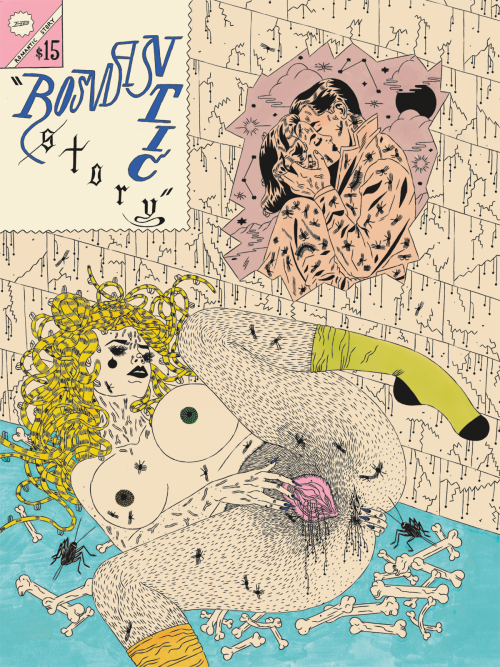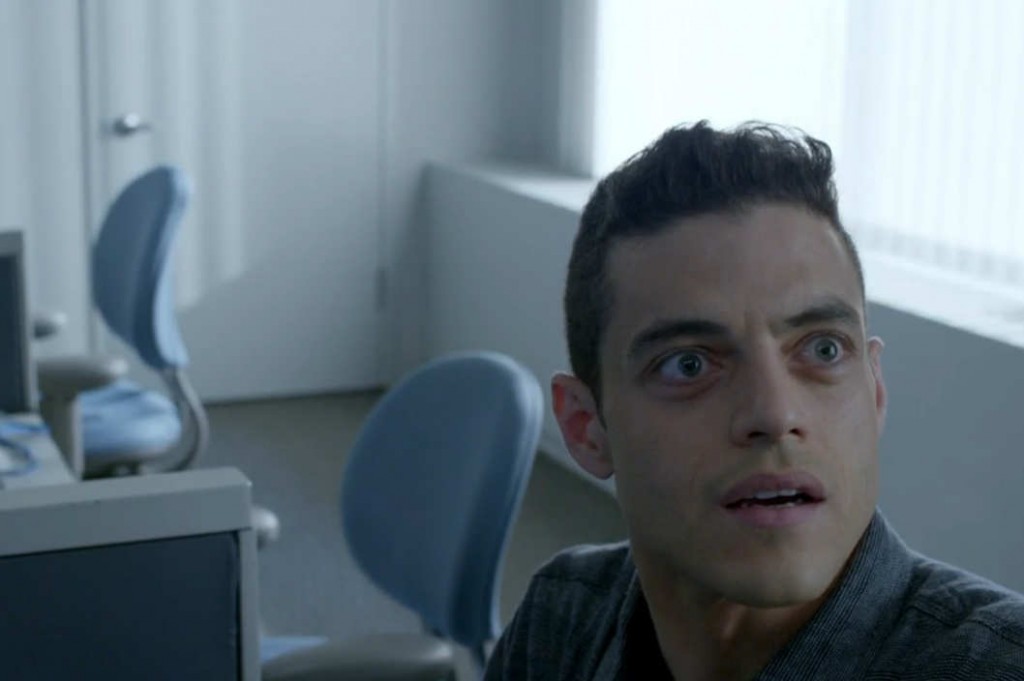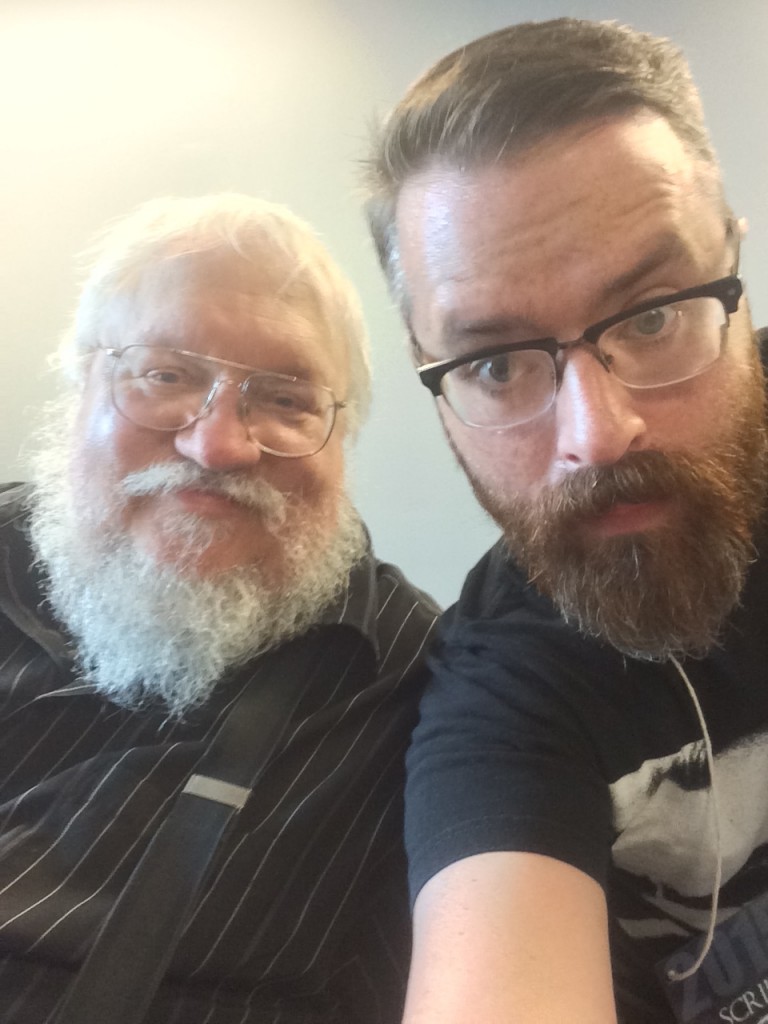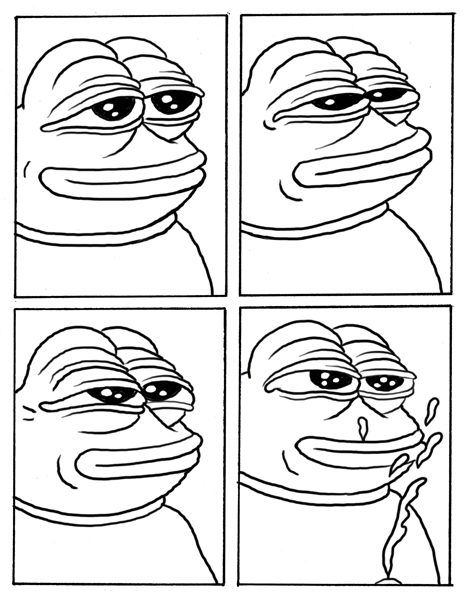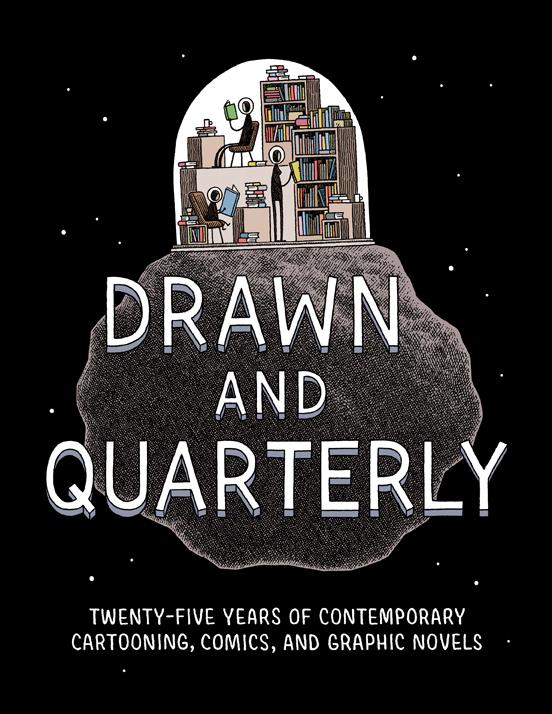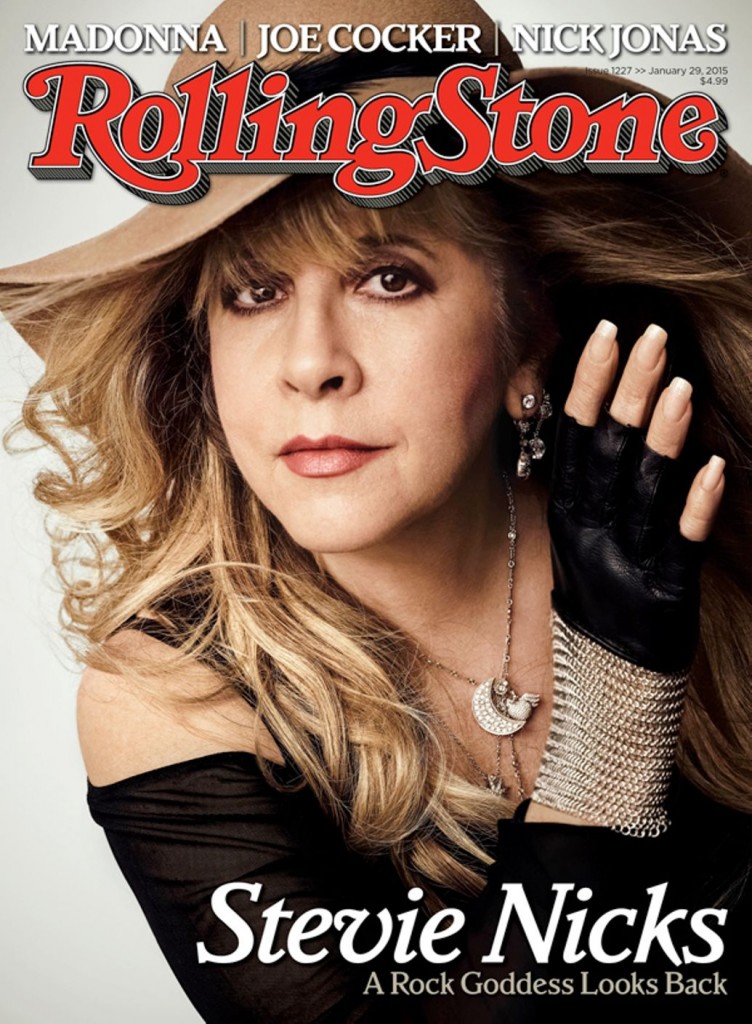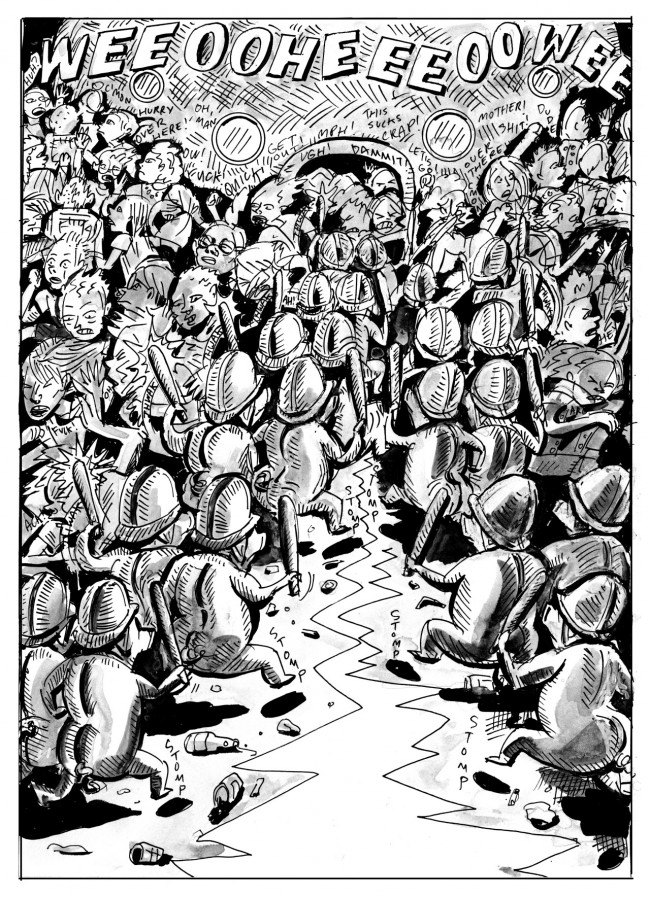Posts Tagged ‘interviews’
Jonesing for Jessica Episode 13: AKA Smile
February 16, 2016Longtime friend of the blog Elana Levin and her cohost Brett Schenker invited me on their Graphic Policy Radio podcast to discuss the season finale of Jessica Jones, as well as the whole season itself. It was contentious and fun. (Spoiler Alert: I’m Officer Simpson’s Bad Fan.) Give it a listen!
Vic Berger IV Is Vine’s Strangest Political Satirist
January 7, 2016Fallon doesn’t want to offend. I am sure he is the nicest guy, and would be super fun to hang out with, but his show appears to be this platform where anyone can come on and paint themselves however they want to appear. My annoyance with him started with Chris Christie constantly being on there, dancing around and doing his dumb skits about how much he loves Springsteen. Christie is such a gross and horrible person. I worked for a decade for the state of New Jersey and can truthfully say he’s done way, way more harm for the state than he’s done good. And the whole shutting down of the bridge bullshit? He denies it all, and then the next thing you see is him on Fallon making light of it and singing a song about it or whatever. Fallon lets these terrible people saywhatever they want. Not that the host of The Tonight Show needs to be a hard-hitting journalist getting to the bottom of things—it’s just that if he’s going to have these people on, at least have some point of view. Don’t just laugh nervously about it. I mean, one of his questions to Christie was, “Heard you hung out with the Romneys! So how are the Romneys? They’re all awesome.”
The other thing about Fallon that drives me crazy is how he will have a guest on and then bring out an iPad and try out some app with them. It’s unbelievable. There are segments where there’s like 30 seconds of him staring silently at an iPad wearing earphones. I’ve made a few Vines using those moments.
Over at Vice I interviewed the brilliant, brutally funny video editor Vic Berger IV, Vine’s strangest political satirist, about his five muses: Jeb Bush, Donald Trump, Chubby Checker, Jimmy Fallon, and Jim Baker.
Interview: Heather Benjamin
December 17, 2015Given the cover of Romantic Story this is a weird thing to say, but this seems less sexually explicit than your past books.
Heather: I don’t think that’s weird at all! I view this work as way less sexually explicit, too—which is funny, because there are still gaping vaginas everywhere. I guess I’m just desensitized to that. But there’s not really any penetration or actual sexual acts going on, which is unlike my older work. It has to do with what I was saying before, actually, how my work tends to mirror what’s going on in my personal life. Honestly, at the time when I was making work like Sad Sex, I was mirroring exactly what I was feeling, what I was going through in my life: dealing with different partners, different people, trust tissues, the different dynamics of being single and feeling very alone and isolated and messy regardless of whether I was getting some or not. It’s hard to put it into words; I guess that’s why I don’t too often, and why I was making work about it instead. It sounds dumb to me when I try to explain it, but when I was making work that included fucking, it’s because in my life I was dealing with emotions and complications as a result of fucking.
Now I’m making less explicit, less fully pornographic work, because it’s not the dynamics of fucking that I’m grappling with on a daily basis. I’m less interested in how other people made me feel as a result of being involved with them—unlike in Sad Sex, when I was using text in some pieces, like “you make me feel special” or “I masturbate thinking about your boyfriend,” making really blatant statements about how relations between myself and various people affected my self-perception and my experience. I’m now more interested in my own singular experiences with, and within, myself, not those that are explicitly being generated by other people in the present. It’s more introspective and nostalgic, and less about depicting something generating panic and emotion in the moment. This obviously still has a lot to do with sexuality and physicality, but less to do with sexual acts, unless they’re being performed on oneself, or are being looked back on in reflection and anxiety.
I interviewed the truly brilliant artist Heather Benjamin for Adult.
STC on Cut to the Chase!
October 26, 2015I’m the guest on this week’s episode of Chase Thomas’s Cut to the Chase podcast on writers and critics! Chase and I discuss my origin story as a writer, Game of Thrones, Lost, The Affair, Empire, True Detective, Gotham, Daredevil, cartoons, comics, and much more. I hope you enjoy!
How “Mr. Robot” Became One of TV’s Most Visually Striking Shows
September 2, 2015Fitting for a show about those occupying society’s technological substrata,Mr. Robot’s characters are often placed at the very bottom of the frame. This leaves massive amounts of headroom that suggests a great weight hanging over their heads, and echoes their isolation: When they’re talking right to each other, they seem alone. In more conventional filmmaking, conversations are cut with the characters looking at each other from opposite ends of the frame, leaving what’s known as “leading room” between their faces that helps convey the physical space they occupy. Mr. Robot inverses the norm by “shortsighting” the characters, positioning their faces at the edge of the frame closest toward the person to whom they’re speaking.
“Shortsighting is unnerving,” Campbell explains. “It further accentuates how fucked-up Elliot’s world is. The idea was to convey the loneliness. That’s the internal dialogue I had with myself: How do we tell that story? How do you get Elliot across?”
The effect goes a long way in selling audiences on the mounting paranoia and dissociation of the show’s main character, hacker Elliot Alderson (Malek). Without the usual pattern to help us intuit spatial relationships, these scenes create the sense that the characters don’t know where they stand in relation to one another. They also remind us of the picture-in-picture, face-against-flat-surface nature of video chatting, which can’t be overlooked on a show this attuned to the alienating effects of technology.
I spoke with Mr. Robot’s director of photography, Tod Campbell, about the show’s gorgeous shot compositions for Vulture. It felt great to write an article about television that focused on pure form. Woo!
Phoebe Gloeckner on reopening “The Diary of a Teenage Girl”
August 13, 2015It was funny: I haven’t talked to the real person that [Monroe] was based on in a long, long time, but then I saw he was on Facebook. I wrote to him and I asked him if he’d read the book, and he hadn’t, so I sent him a copy. He said he read five pages and couldn’t read any more because it was “too intense.” Then he kept saying he’s going to read it, but he can’t. But when he found out there was a movie, I sent him the trailer, and he was really excited. He showed the trailer to some friend at a bar—I don’t think he’d said that it was supposed to be based on him—and that person said, “Wow, that relationship is really screwed up. Why are you showing me this?” The guy said “What do you mean, ‘screwed up’? That’s a real man!” You know? “He’s a real man! He’s going for it!” You can see that that particular person, that character…I mean, if I treated him correctly, he’s not the type of person who’s able to reflect on any of that. Which contributes to Minnie’s loneliness. It takes her a while to realize that, because she’s thinking she’s in love with him. What do you do when you’re “raped,” in quotes, by someone who’s thoughtless and unaware? There’s no way to have a discussion about that with him because he’s not on the ball enough to even grasp the situation. I don’t know what people think. You could argue rape or not—I mean, I don’t fucking know. It’s a complicated situation.
For my A.V. Club debut, I interviewed Phoebe Gloeckner, my hero, about The Diary Of A Teenage Girl. I first interviewed Phoebe 12 years ago, and she’s been my hero ever since.
I interviewed George R.R. Martin
August 11, 2015The number one question people ask me about the series is whether I think everyone will lose—whether it will end in some horrible apocalypse. I know you can’t speak to that specifically, but as a revisionist of epic fantasy—
I haven’t written the ending yet, so I don’t know, but no. That’s certainly not my intent. I’ve said before that the tone of the ending that I’m going for is bittersweet. I mean, it’s no secret that Tolkien has been a huge influence on me, and I love the way he ended Lord of the Rings. It ends with victory, but it’s a bittersweet victory. Frodo is never whole again, and he goes away to the Undying Lands, and the other people live their lives. And the scouring of the Shire—brilliant piece of work, which I didn’t understand when I was 13 years old: “Why is this here? The story’s over?” But every time I read it I understand the brilliance of that segment more and more. All I can say is that’s the kind of tone I will be aiming for. Whether I achieve it or not, that will be up to people like you and my readers to judge.
I interviewed George R.R. Martin, and you can read what he said in the New York Observer.
I Serve the Base
August 9, 2015‘The Walter White of Comedy’: James Urbaniak on ‘Review’ and Rise of Funny Antiheroes
August 5, 2015At first glance, Review appears to be comedy in which someone makes a major production of doing basic things in a very stiff, social-anthropology, insider-playing-at-outsider way — Sasha Baron Cohen in khakis. This is indeed the basic approach. But the show’s genius is that instead of treating each review as a separate, self-contained event, mined for jokes then never referred to again, there’s continuity between all of them. The magical comedy reset button you’d expect them to hit after Forrest, say, gets addicted to cocaine, overdoses, and goes to rehab, never gets hit. The experiences build one on top of another.
That’s the angle that stands out to actor James Urbaniak, who plays Forrest’s amoral producer/enabler Grant. “There’s an element of it being a satire of reality TV,” he says. “In reality TV, you make decisions that have an emotional effect on people but are restricted by the parameters of the game or the competition. Review “is breaking down those parameters, so he’s making very big decisions, like getting divorced, that affect his whole life.”
“Affect” is an understatement. Even though the only time he acknowledges it before the first season finale is in one brief fit of self-pity while eating an enormous stack of pancakes (don’t ask), Review shows Forrest slowly but surely destroying his life and the lives of everyone around him. His marriage ends. Multiple people get killed. All under the rubric of this preposterous high-concept mockumentary show.
In other words, Review is a satire not just of reality shows, but of New Golden Age of Television antihero dramas, hiding in plain sight. It takes the basic “man ruins all he cares about in the name of something that makes him nominally freer and more powerful” structure of the genre and plays it for deliberate laughs. Instead of a meth empire or a mafia family or a double life, he commits his bad acts in the name of the television show that chronicles them. He’s Walter White, but without the sense that there’s anything tragic about him — he’s just an oblivious faux-smart buffoon. It’s a satire of the middle-class middle-aged white-male entitlement and privilege that all the big dramas treat as the stuff of life.
“He is like Walter White,” Urbaniak says. “I never really thought about it that way, but I like it, and I’m buying it. He’s a guy who’s made, at a certain age, decisions that simultaneously give him some power but also upend his reality and the reality of those around him. Andy, in his comedy before the show, has always explored the disturbing depths within unassuming guys. He’s from New Jersey, but he has a quintessentially midwestern quality. He just seems like a quintessential nice, pleasant-looking, affable American guy; then it’s all about the depths that this guy’s capable of getting himself into, very much on his own. That sort of is like Don Draper and Walter White and those other guys. I dunno—maybe there’s some zeitgeisty thing going on about middle-aged white guys.”
Halt and Catch Fire’s Kerry Bishé on Donna’s Huge Season and Why the Show Isn’t a Hit
August 3, 2015That camaraderie came through on the screen. You can understand why these characters are drawn to working together, even when they’re not getting along. They seem to respect each other.
That’s really great. One of the big differences between season one and season two is that the working relationships in season one were incredibly contentious. The characters would manipulate and lie, and they were really out for themselves. In season two, the working relationship really changed. While it remained contentious, there was a sense that these two women [Donna and Cameron] in particular very deeply respect and value each other, and they’re really trying hard to make it work.And in many of their disputes, both of the positions on where to take the company are equally reasonable. It’s much more exciting to watch a drama when you genuinely can’t decide what “should” happen.
I love that. That’s what good writing does, to me. All the characters have good reasons to do what they do, so you can understand CameronandDonna, even though they’re making opposite decisions or have opposite priorities. You still feel like they’re both completely justified in the choices they’re making. I concur, I think that’s a really great part of this show.That carries over to the characters’ personal lives too. The show didn’t pump-fake in the direction of Donna’s abortion — she actually went through with it, and her reasons were presented as sound and strong and nothing to be ashamed of.
That was a fascinating story line, and it was interesting how it all played out. The writers were really intent on making it a confident decision that Donna made. They didn’t want her to be wishy-washy, they didn’t want it to be a thing that [dramatic voice] destroyed her, you know? They did a great job of giving her that backbone. But at the same time, in a bigger-picture way, I didn’t want it to feel like, you know, working women who have a career have to sacrifice, or that given the opportunity women will choose their career over their family. It felt like threading a needle to me. It ended up being a pretty good balance between what the writers needed it to be and what I needed it to do to feel okay about what we were putting out in the world.
The Creator of Pepe the Frog Talks About Making Comics in the Post-Meme World
July 28, 2015Have you ever thought about collecting all the Boy’s Club comics in a single book?
I’ve thought about it. I dunno. The problem with books is I usually end up getting not that great of a deal. If the right situation came along I’d do it, but it’s really not even… I mean, I guess it would be worth it, to have it be easier for fans. But I kind of like it not being easy for people to get. I dunno, it’s kind of funny to see it on eBay for $400 or something. My lady thinks that Pepe’s a self-portrait, in a way—she says I have Pepe’s eyes—so it’s kind of neat to see something that’s so personal to me on some level infiltrate this weird nether-region of the internet. I’ve made my mark on the internet, so I can relax. I’m retired now, living off all the shares and likes.
Going Weird: An Interview With Tim & Eric About Their New Cult Satire ‘Zone Theory’
July 7, 2015What was it like going from live action—film, TV, live shows—to a book? How did you translate what you do?
Heidecker: It’s sort of this mixed blessing with Adult Swim where whenever we make stuff for them, it’s their property. Whenever we do something outside of that world, we have to start fresh again. You can’t just recycle stuff. A lot of people would put out a guide to Awesome Show Cinco products or something.
Wareheim: Yeah, we could easily have done a chapter on Business Hugs.
Heidecker: So this was a challenge. You have to start clean and make stuff up from scratch, which is ultimately more satisfying. There was a period where we thought it could be a hybrid of a real story about us that then it turns into this thing, but it just felt more fun to keep it wide open. Zone Theory is so general that you can cram any idea in there and make it work.
Wareheim: It was definitely a new learning experience, but at the core of it, it’s a somewhat similar process, creatively. One of the greatest parts of this is Tim and I getting together and having lunch, laughing about how we were gonna structure this thing. It’s sort of like doing a Bedtime Stories or a movie: “Here’s what we have to do to get enlightened, here are all the steps,” and then we’d go off on our own and write a little bit.
Heidecker: It was a blank slate: ”You guys wanna write a book? Let us know what you wanna write about. It could be anything.” It could have been the history of Tim and Eric, or our guide to being a dad. That was the hard part: focusing what we wanted to do, then populating it with enough jokes and ideas that it felt like something you could sit with for more than ten minutes. Making sure it went somewhere, had a point of view, that it was its own universe and not just total nonsense.
Wareheim: We knew we wanted to have a visual style that’s similar to some of the TV or video elements. We knew we wanted to work with the same designer [Duke Aber] who’s done all of our DVDs and posters. His design is like a character in the book. It really stands out.
You can also show a giant two-page spread of a penis in a book, which you can’t do on a TV show. I got to that part and thought “I’m so happy for these guys! They can take it as far as they want!”
Wareheim: [Laughs] Besides the penis thing, it’s not that much further.
The penis kind of stands out.
Wareheim: Absolutely. We were hoping for that. With that particular thing, I talked to our graphic artist about it. We can’t legally take a penis off the internet, and he didn’t want to photograph one, so he molded that penis out of all these other penises so that it can legally exist. Just that we made some poor guy do that is great.
Heidecker: It also was meant for to you open up the book to that page and go “Gahhhh—they did it again, those assholes!”
Alison Bechdel on “Fun Home”‘s Tony-Award Triumph
June 18, 2015What is it like for you to walk into that theater? It’s like being in your living room.
It’s overwhelming. I haven’t found a way to express the super bizarre surrealness of seeing my life on the stage and watching it play out multiple times. It’s a very strange ontological position to occupy. It both is and isn’t my life. I don’t really understand my relationship to the play. I’m still trying to figure that out.
The book received a lot of attention and acclaim as well, but with the musical, there are warm bodies on stage and in the audience. Does that make the enthusiastic reception of the show feel different?
That’s definitely part of it. The amazing risk involved in live theater? I could not bear that. You just count on so many people to get things right. You’re working with this giant team, from the prop manager to the actors, and they all go out on that tightrope every night together. That’s a very intense experience for the audience.
But also, a musical is something designed to have broad appeal. There’s a lot of money invested in this thing. It’s very difficult to get a show produced. What’s amazing to me is that this very weird, very particular, very risky story that’s not conventional Broadway fodder by any means has made it on Broadway! I feel like there’s always a trade-off between the size of your message and the size of your audience — they’re in inverse proportion. But in this case, there’s no skimping on the message. It’s not airbrushed in any way. It’s kind of just gritty and real. And it’s reaching these big Broadway audiences.
Did the sheer size of the collaborative effort involved seem a world away from sitting at your drawing table?
I was struck with that all along. Lisa [Kron, the writer/lyricist] and Jeanine [Tesori, the composer] had to be open to so many people’s input. That would have driven me absolutely nuts, but that’s part of what they love about it. Comics is about as far on the other end of the continuum as you can go. I do all my own set design and costumes. I do all the acting. That’s all me, and that’s the way I like it.
The Characters of Game of Thrones’ Saddest Season, Ranked by Happiness
June 16, 20155. Sansa Stark
Sansa’s got the potential to be happy. First of all, she’s matured a lot. She actually liked Joffrey at the beginning! And given how terrible it’s been for her, she’s not doing too bad. I think that for her, it’s possible to recover from trauma. They show her to be that type. I mean, she’s pretty tough. She never got to the point where she just gives up. She thought everybody in her family was dead, but when it looked like Theon would light that candle and she would be saved, she really thought she was going to be okay. It didn’t go well, but even now she’s got hope again, now that she’s found out her little brothers weren’t killed. And also, she chewed Theon out, but then when she found out her brothers weren’t killed, she backed off. She’s not so angry and vindictive that it’s destructive. She’s appropriately so.
4. Samwell Tarly
This guy has peace. With his background of being bullied, he’s unusual because he doesn’t seem overly insecure. He’s not trying to prove to people, “I’m not really such a wimp!” He does stuff when he has to, not just to prove things. It’s not the usual outcome of his whole set of features for him to be comfortable with himself, but he is. He loves his girlfriend, he loves the baby she named after him, he has purpose, and he’s very comfortable with that. It’s not the overly driven ones who are happy, it’s the ones who find peace within. It sounds so trite, but it’s true.
DQ25
June 2, 2015I interviewed the great editor and publisher Tom Devlin in this beautiful book about Drawn and Quarterly, one of the best and most important comics publishers of all time. It’s out today, and it’s filled with comics by wonderful cartoonists. Check it out!
Q&A: Clive Barker on Almost Dying, Hustling, and Killing Pinhead
May 19, 2015You’ve been so unequivocal and public that this book is about the death of Pinhead — full stop, no spoiler warning. Why?
Why not? If I’d been sly about this and not even mentioned the fact that Pinhead — excuse me, the Hell Priest — was going to die, that would have seemed really dumb. It’s actually a really important element of the book, the element of the book which will draw the most attention. He will not be coming back, by the way. That I promise you. There will be no return, no posthumous Frank Sinatra concerts from him.
In reading, I couldn’t help but think about your own life. You’ve been working on this book for years—
Yes, I have been working on this book for years. But I also had a coma, and lost my mother, my father, and the young man who was almost my son, and a lot of other terrible things in the meantime. Even though it might seem that I’ve been diddly-daddling instead of actually writing, a lot of that daddling has been because I was unconscious. I, uh … I take the Fifth. [Laughs.] I’m making a joke of it, but there have been some pretty damn horrible times of late. I’m only just now, after some many years, priming to leave the house. I’ve only been out of the house five times in the last few years. I am now well enough to, actually, finally leave the house. [Sardonically.] Hey, what about that!
In the midst of all this, you revealed that you supported your writing career in the early days by working as a hustler.
Was that really such a revelation? I was surprised. Maybe I hadn’t talked about it in the past, but I didn’t think I’d hidden it too much.
I got the sense that that was a painful time in your life to revisit.
It was, and yet it wasn’t. It was humiliating many times. It was stultifyingly boring much of the time. And it’s bad sex, mainly. [Laughs.] But you can’t have everything. It kept me in bread and cheese through a bad time in my life, fiscally. But do I want to go back to hustling anytime soon? Nope.
For my Grantland debut I spoke with Hellraiser director Clive Barker about his life, his health, and the death of Pinhead. His new book The Scarlet Gospels, which contains exactly that, is in stores today, and it is furious and empathetic and takes no prisoners.
Blood Caffeine Sex Magic: Co-Producer Bryan Cogman on How “Game of Thrones” Gets Written
April 2, 2015You’re just about to hit the end of the story that George R.R. Martin has published so far. Did you see this coming?
Well, I think, in the first couple of years, it was really just about getting each season right and hoping people would watch. By the time we got to planning out and shooting Seasons Three and Four, David & Dan started really thinking about the overall shape of the series, since we knew we were going to be able to see this thing through. In the end, the show has to go at its own pace and George has to write the books at his own pace. He and D&D are obviously in close communication the whole time about both. But the show is its own thing, as it has to be.
There’s a segment of the fandom that’s freaking out about this, saying that the TV series will “spoil” the remaining two volumes of the book series. Is that a concern the show shares?
I think we just have to make the best Season Five, Season Six, and beyond that we can. Not sure I’m at liberty to comment more specifically than that.
“New” material aside, it also seems from trailers and casting and locations and so forth that this season will change some existing storylines sort of dramatically. When you do stuff that’s not in the books, for whatever reason, what’s the vibe, creatively? Is it a “with great power comes great responsibility” thing, or “woo-hoo, we’re goin’ off-book!”
Well, I think at this point, we do have great responsibility to the viewing audience, whether they’ve read the books or not, to try to produce 10 hours of outstanding television. All sorts of factors go into why a particular subplot, character, story beat, etc. might differ from the books. Again, it’s all tackled and debated on a case-by-case basis. Ultimately, it always has to come down to what David & Dan feel is best for the show.
Julia Garner on Her Difficult Role on “The Americans,” and Kimmy’s “Daddy Issues”
April 2, 2015In tonight’s episode, there’s a moment after Jim brings Kimmy home drunk from a frat party where he tells her, “unlike your friends, you’re very real.” You get the sense that as much as anything else, she’s just desperate for someone to talk to who will listen.
Absolutely. He’s kind of the only one, it seems to her, who’s paying attention. That’s huge, especially for someone who’s 15 years old. They’re not a kid, but they’re not an adult, they’re at a really weird age. She’s like, “he’s giving me what I want, and I’m feeling satisfied. It’s the attention that I want someone to give me.” It’s not even attention, it’s care. It’s being acknowledged. If a person feels like “they’re not acknowledging me” … That’s a very important feeling in life, even if it’s not romantic. She doesn’t get that acknowledgment at home.
STC on DeForge in RS
January 19, 2015Say Hello, Leah Wishnia!
December 19, 2014[LEAH WISHNIA:] I honestly don’t really think too much about how my own comic work fits into the over-arching canon of alternative comics and such. I’m just trying to do work that I enjoy and that others might appreciate as well. Although I like to think of my own comics style and vision as being unique, I don’t feel that it’s necessarily at odds with other alternative comics that are being produced and distributed right now—in fact, there’s quite a few contemporary cartoonists whose output of work I totally “get,” work that seems rooted in a similar place as my own.
Indeed, though, many of my comics have featured characters that act and react quite dramatically, a kind of exaggeration of some negative attributes I see in both myself and in others. I think there’s a lot of chaos and pain and greed present in our culture right now that often goes unnoticed or unaddressed, so I like to take those negative things and amplify them until they reach absurd proportions, beating people over the head with it all until someone takes notice.

